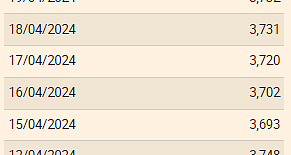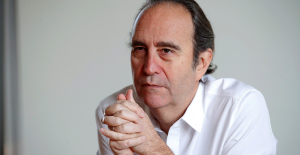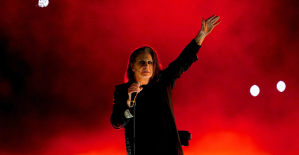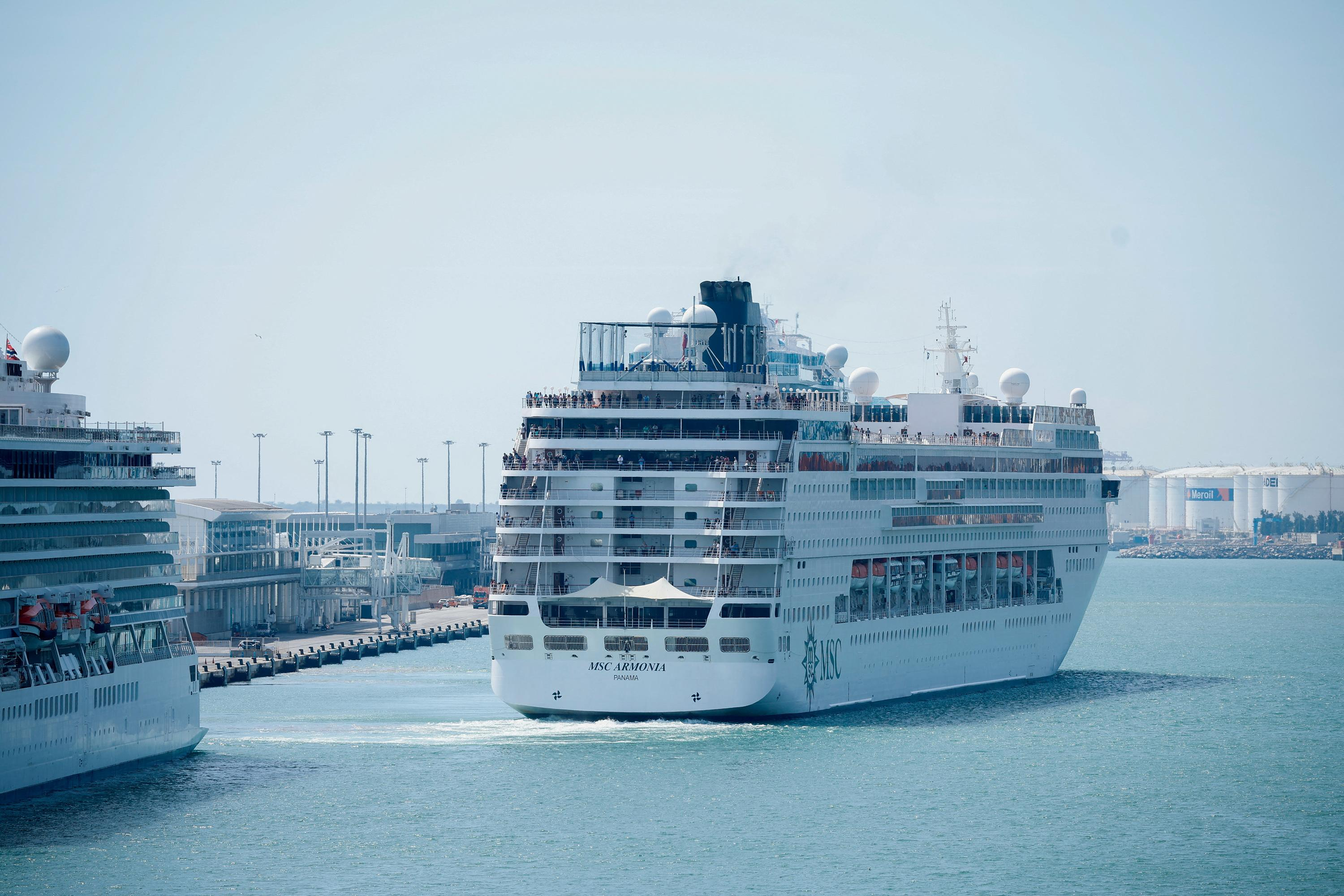For Volkswagen it was the most important product launch of the year: When the then CEO Herbert Diess presented the electric ID. Buzz presented in Hamburg at the beginning of March, even Lower Saxony's Prime Minister Stephan Weil, who also sits on the VW Supervisory Board, made the trip.
The men reveled in childhood memories of the "iconic" VW Bulli, whose rebirth the electric bus is supposed to be. An emotional car that, with planned quantities of less than 100,000 cars per year, is not really significant in a group that sells nine million cars a year.
Nevertheless, the ID. Buzz is more important to Volkswagen than many more modern cars. “Retro models can be a position anchor for a brand. Customers associate it with a certain attitude to life and positive emotions,” says Helena Wisbert, Professor of Automotive Economics at the Ostfalia University and at the private Center Automotive Research.
She thinks that bringing back the old VW Bulli is a “very good strategic move”. Linking to a model that was previously successful can also be seen as a counter-movement to the futuristic concepts of modern electric cars, says Wisbert.
Other car manufacturers also rely on flagship products that hark back to the supposedly good old days. The French Renault group, which wants to launch its classic Renault 5 as an electric car in a new revision, is doing this particularly intensively. CEO Luca de Meo presented a prototype of the new R5 last year, and the car is scheduled to come onto the market in 2023.
De Meo is planning something similar with the R4, which was originally developed in the 1960s. At the Paris Motor Show, an international trade fair, he presented a corresponding "show car" in SUV dimensions. However, unlike the new R5, the car is only remotely reminiscent of the historical model.
De Meo is one of the biggest fans of retro vehicles in Europe's auto industry, although he doesn't like the term. "I call that more of a classic," he said in an interview with WELT AM SONNTAG. Just like the marketing expert Wisbert, he also sees these vehicles as a tool to give a brand profile. With the new edition, Renault is building on the company's most successful times, he said.
This strategy runs through de Meo's career in the European auto industry. Before his rise to Renault boss, the manager was, among other things, long marketing manager at Volkswagen and at the Italian competitor Fiat. There the Italian had revived the classic Fiat 500. This small car is now a bestseller, also as an electric vehicle.
If you include the 500 X, L and Abarth variants, the manufacturer has sold more than 180,000 Fiat 500s in Europe since the beginning of the year. This makes the car number one in the new registration rankings, ahead of the Peugeot 208.
Like Peugeot, Fiat now belongs to the Stellantis group, whose boss Carlos Tavares is not considered a nostalgic, but a cool numbers man. As long as the classic sells well and makes lavish profits, Tavares will of course also like the model. For Opel, also part of Stellantis, the bar has been set: the brand from Rüsselsheim is planning the new edition of its classic Opel Manta as an electric car.
The risk of a flop always resonates with retro cars. They also know that at Volkswagen. The Beetle, as a revenant of the VW Beetle, sold more than 100,000 units in just two years, otherwise it was always below that. It remained a niche model that could not build on the success of the historical role model - also because customers now prefer to buy SUVs than compact cars. The last cars rolled off the assembly line in 2019.
The group is currently starting a new experiment in the USA, with which it wants to build on traditions: the Scout brand from the 1960s and 1970s is to come back as a new company. The rights to Scout came to VW through a takeover in the truck market. Now the previous head of North America is building it up again, in a kind of start-up within the group. The construction of their own factory is also under discussion.
Two large electric Scout models are planned, a pick-up and an SUV. Unlike the Beetle, the cars are aimed at the core of the US market, in which Volkswagen and the Group brands have hardly been represented to date. “An automaker can experiment much better with retro models than with a core product like the Golf. Because the economic risk is significantly smaller in a market niche,” says Wisbert. "It is more important for the volume models that they live on from generation to generation."
Such reminders are also a way to set yourself apart from new competitors. Chinese manufacturers or Tesla, which has only been around for a few years, simply cannot fall back on it. But the Korean Hyundai group does. It demonstrates its tradition with a prototype that carries the Pony Coupé Concept from 1974 up to the present day. With this model, the company's expansion into an automobile manufacturer with a global sales market began. Hyundai sold four generations of the Pony until 1994, when the series was discontinued.
The German premium manufacturers have shown a lot of staying power. Mercedes-Benz has been building the eleventh generation of the S-Class since 1972. BMW has just brought a new 7 Series onto the market, it's the seventh series since 1977. If you've been loyal to your own classics for so long, you don't need to resort to retro models.
The new VW CEO Oliver Blume also comes from a brand that upholds tradition. At Porsche, whose boss is Blume in personal union, the 911 hovers above everything else. The family company presented the car in 1963 at the IAA. At that time, the VW Beetle was still in full bloom.
Now people in Wolfsburg are wondering what will happen next with the Golf as the successor to the Beetle. Actually, the electric cars ID.3 and ID.4 should replace the mass product from the combustion engine era. But the group is thinking about that again. It will only be known in a few decades whether a retro Golf will ever come onto the market like the Retro Bulli is today.
"Everything on shares" is the daily stock exchange shot from the WELT business editorial team. Every morning from 7 a.m. with the financial journalists from WELT. For stock market experts and beginners. Subscribe to the podcast on Spotify, Apple Podcast, Amazon Music and Deezer. Or directly via RSS feed.

 The Euribor today remains at 3.734%
The Euribor today remains at 3.734% Germany: the trial of an AfD leader, accused of chanting a Nazi slogan, resumes this Tuesday
Germany: the trial of an AfD leader, accused of chanting a Nazi slogan, resumes this Tuesday New York: at Columbia University, the anti-Semitic drift of pro-Palestinian demonstrations
New York: at Columbia University, the anti-Semitic drift of pro-Palestinian demonstrations What is Akila, the mission in which the Charles de Gaulle is participating under NATO command?
What is Akila, the mission in which the Charles de Gaulle is participating under NATO command? What High Blood Pressure Does to Your Body (And Why It Should Be Treated)
What High Blood Pressure Does to Your Body (And Why It Should Be Treated) Vaccination in France has progressed in 2023, rejoices Public Health France
Vaccination in France has progressed in 2023, rejoices Public Health France Food additives suspected of promoting cardiovascular diseases
Food additives suspected of promoting cardiovascular diseases “Even morphine doesn’t work”: Léane, 17, victim of the adverse effects of an antibiotic
“Even morphine doesn’t work”: Léane, 17, victim of the adverse effects of an antibiotic MEPs validate reform of EU budgetary rules
MEPs validate reform of EU budgetary rules “Public Transport Paris 2024”, the application for Olympic Games spectators, is available
“Public Transport Paris 2024”, the application for Olympic Games spectators, is available Spotify goes green in the first quarter and sees its number of paying subscribers increase
Spotify goes green in the first quarter and sees its number of paying subscribers increase Xavier Niel finalizes the sale of his shares in the Le Monde group to an independent fund
Xavier Niel finalizes the sale of his shares in the Le Monde group to an independent fund Owner of Blondie and Shakira catalogs in favor of $1.5 billion offer
Owner of Blondie and Shakira catalogs in favor of $1.5 billion offer Cher et Ozzy Osbourne rejoignent le Rock and Roll Hall of Fame
Cher et Ozzy Osbourne rejoignent le Rock and Roll Hall of Fame Three months before the Olympic Games, festivals and concert halls fear paying the price
Three months before the Olympic Games, festivals and concert halls fear paying the price With Brigitte Macron, Aya Nakamura sows new clues about her participation in the Olympics
With Brigitte Macron, Aya Nakamura sows new clues about her participation in the Olympics Skoda Kodiaq 2024: a 'beast' plug-in hybrid SUV
Skoda Kodiaq 2024: a 'beast' plug-in hybrid SUV Tesla launches a new Model Y with 600 km of autonomy at a "more accessible price"
Tesla launches a new Model Y with 600 km of autonomy at a "more accessible price" The 10 best-selling cars in March 2024 in Spain: sales fall due to Easter
The 10 best-selling cars in March 2024 in Spain: sales fall due to Easter A private jet company buys more than 100 flying cars
A private jet company buys more than 100 flying cars This is how housing prices have changed in Spain in the last decade
This is how housing prices have changed in Spain in the last decade The home mortgage firm drops 10% in January and interest soars to 3.46%
The home mortgage firm drops 10% in January and interest soars to 3.46% The jewel of the Rocío de Nagüeles urbanization: a dream villa in Marbella
The jewel of the Rocío de Nagüeles urbanization: a dream villa in Marbella Rental prices grow by 7.3% in February: where does it go up and where does it go down?
Rental prices grow by 7.3% in February: where does it go up and where does it go down? Europeans: “All those who claim that we don’t need Europe are liars”, criticizes Bayrou
Europeans: “All those who claim that we don’t need Europe are liars”, criticizes Bayrou With the promise of a “real burst of authority”, Gabriel Attal provokes the ire of the opposition
With the promise of a “real burst of authority”, Gabriel Attal provokes the ire of the opposition Europeans: the schedule of debates to follow between now and June 9
Europeans: the schedule of debates to follow between now and June 9 Europeans: “In France, there is a left and there is a right,” assures Bellamy
Europeans: “In France, there is a left and there is a right,” assures Bellamy These French cities that will boycott the World Cup in Qatar
These French cities that will boycott the World Cup in Qatar Serie A: Bologna surprises AS Rome in the race for the C1
Serie A: Bologna surprises AS Rome in the race for the C1 Serie A: Marcus Thuram king of Italy, end of the debate for the position of number 9 with the Blues?
Serie A: Marcus Thuram king of Italy, end of the debate for the position of number 9 with the Blues? Milan AC-Inter Milan: Thuram and Pavard impeccable, Hernandez helpless… The tops and flops of the derby
Milan AC-Inter Milan: Thuram and Pavard impeccable, Hernandez helpless… The tops and flops of the derby Ligue 2: Auxerre leader, Bordeaux in crisis, play-offs... 5 questions about an exciting end of the season
Ligue 2: Auxerre leader, Bordeaux in crisis, play-offs... 5 questions about an exciting end of the season


















